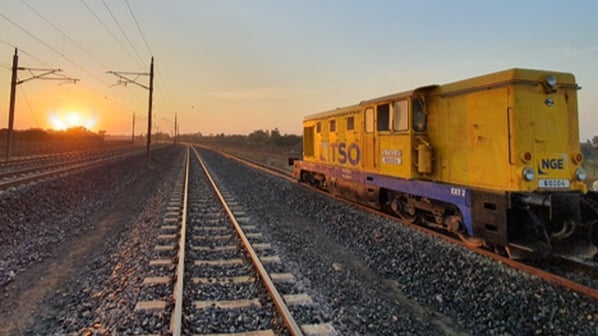The upgrade, which took two years, was designed to substantially improve the reliability of services to and from Dakar, eliminate derailment risks and optimise the line to handle increased traffic volumes. The non-electrified line partially runs parallel with the electrified double-track TER passenger line.
The consortium, which included NGE Contracting, CIM and CDE, was awarded the contract by Senegal’s National Agency for Investment Promotion and Major Projects in 2017 on behalf of the Ministry of Infrastructure, Land Transport and a Better-Connected Nation.
TSO hired and trained 160 staff before beginning work on the project in June 2018. Construction required 86,000 sleepers, 5700 tonnes of rail, 23 points and crossovers, and 150,000 tonnes of ballast. TSO also brought in equipment from overseas to undertake the project, including tampers, ballast grading and levelling machines and a rail welder.
The upgraded freight line will play a major role in the future economic development of Dakar by offering a modern, safe and efficient transport route to the port in the capital.
“This project has been a human, logistical and technical challenge that we have successfully met in an on-site environment with high levels of parallel working,” says TSO project director, Mr Sylvain Peltier. “Our success with this project has been achieved thanks to the commitment shown by all our teams to embrace continual adaptation to meet the needs of our customer.
“I’m particularly proud of the exceptional involvement of team members, which once again - and especially so given the health concerns of recent weeks - highlights their responsiveness, their ability to adapt working methods, and their strict enforcement of personal protective measures to complete the work under conditions that guaranteed the safety of everyone working on the project.”
- An interview with Sylvain Peltier will appear in the July issue of IRJ.
For detailed data on projects around the world, subscribe to IRJ Pro.

